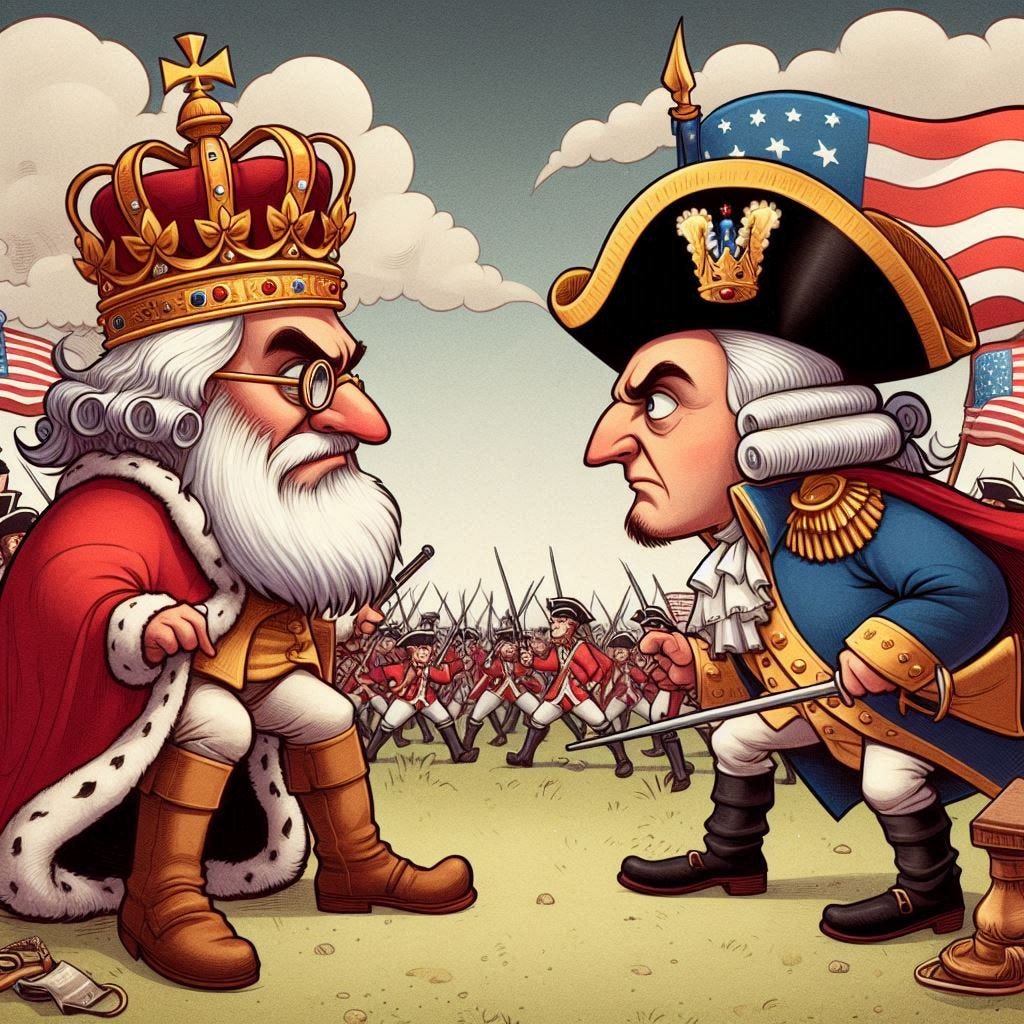Post 16: April 18, 2025
On April 19, we will celebrate the 250th anniversary of a bunch of cranky New Englanders standing up to a king. It got messy, but we got through it. Today, I want to briefly point out one important parallel between then and now: a kind of argument used against those warning about “Constitutional crisis”. Call it the nothing-to-see-here argument.
One of the more effective arguments against the American Revolutionaries in 1776 was pooh poohing their petitions as over-hyped complaints about what one observer called the “prospects of future grievances.” The Americans saw the oversteps of George III as existential threats to their freedom, a start down a slippery slope to absolute and arbitrary rule. But their British critics argued that the colonists’ protests were based on an ideal of freedom that was no more than a fantasy. British law mostly did not affect their day-to-day lives, mostly did not restrain them, they argued back, and that’s all freedom is. So long as we don’t interfere with you personally, you are free.1 Nothing to see here.
We get elements of this line of argument today from those who think the reaction from the save-democracy coalition is Chicken Little hysteria. The sky-isn’t-falling crowd thinks that it isn’t, it seems to me, for two reasons. Narrowly, the main targets of Trump’s attack on the rule of law are immigrants, a group that Republican rhetoric has been “othering” for some time. This puts a comfortable distance between us and the wave front of tyranny. Second, though, is the same broad principle called upon in 1776. Most of us don’t have many interactions with the law, so the fact that the Administration is rejecting due process is distant and abstract. Well, it is. Until it isn’t.
The complaints of the American colonists were real, even if the revolutionaries were also cranky.2 The Declaration of Independence is mostly a litany of specific charges, a “long train of abuses and usurpations” that the Americans claimed evinced “a design to reduce them under absolute despotism.”
On this anniversary of Concord and Lexington, I was wondering how Trump’s record of abuses compares to George III’s. Many of the items in the Declaration were directly related to the on-going military conflict—it came more than a year after Concord recall. Fortunately things have not gotten that bad yet this time around. But the other sorts of complaints at least rhyme. George was accused of abrogating the colonists’ access to the legislative process, both in the colonies by dissolving assemblies and suspending charters, and in Britain. Trump has end-run the legislative branch by unilaterally rescinding funds duly appropriated by Congress, effectively eliminating agencies created by Congress, and imposing taxes—a core power of Congress— in the form of tariffs, by fiat. Cutting out the legislature, even with a little sleight of hand from its own leadership, makes this an instance of taxation without representation. That was the colonist’s main complaint in 1776, if I recall correctly. The Declaration claimed the King “erected a multitude of new offices, and sent hither swarms of officers to harass our people”. Sounds like ICE and DOGE to me. How many of these other Declaration charges sound familiar?
· Obstructed the administration of justice…
· Made judges dependent on his will alone…
· Depriving us, in many cases, of the benefits of trial by jury…
· Transporting us beyond seas to be tried for pretended offenses
· Imposing taxes on us without our consent
Free Kilmar Abrego Garcia. Due process for all. No exceptions. Ever.
Usually, I write about social policy, so today’s post is a bit of a change-of-pace. But my main argument is that the social rights of citizenship are grounded in our duty to preserve and foster freedom, so maybe this is not so far off base after all. We need the resources guaranteed by social rights so we can be free, so we can exercise our civil and political rights, but that presupposes that those rights are well established. Well, what if they are not?
Next Post: TBD
For a critical summary of the run-up to the Revolutionary War, see Andrew Rakich’s YouTube site, Atun-Shei Films. Love his stuff.




